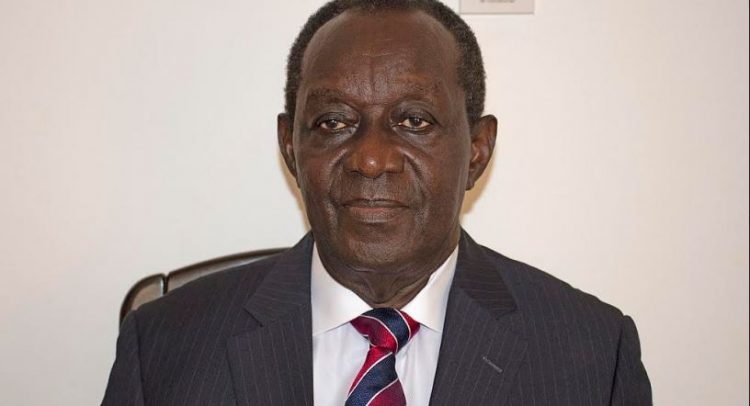
By Juliet ETEFE
The Auditor-General, Johnson Akuamoah Asiedu, has announced a substantial GH?5.4billion decrease in financial irregularities within public institutions.
This means that for last year the Service reports detected financial irregularities of GH?11.17billion in public sector finances compared to about GH?16.57billion in 2022.
This was highlighted during the 2024 Financial Audit and Regional and District Auditors Conference launch held in Accra, themed ‘Fiscal Sustainability and the Role of the State Auditor’, where the Auditor-General noted that the 2023 Financial Audit led to the production of 18 reports, including 14 statutory reports submitted to parliament within the constitutional deadline.
He noted that: “The reports significantly disclose that financial irregularities decreased by over GH?5.4billion compared with the previous year’s irregularities. I am grateful to the heads of public institutions for their keen interest in implementing our recommendations which brought about this improvement”.
He added that the reduction is a result of strict compliance to the Service’s recommendations and also the Public Accounts Committee’s role, which is helping the institutions ensure financial discipline.
The Auditor-General also announced a strategic change in reporting approach for the 2024 audit cycle. Moving forward, reports on public universities will be separated from those of public boards and corporations, reducing the latter’s volume.
In a speech, Deputy Finance Minister Dr. Stephen Amoah applauded the Audit Service’s achievements in the previous year, noting that the Auditor-General presented 18 statutory and performance reports to parliament.
He added that these reports, which covered areas such as the management of COVID-19 funds and performance of state-owned enterprises, served as a “wake-up call” for improvements.
He reiterated that the Audit Service completed 6,166 out of 6,723 planned audits in 2023, achieving an impressive 91.72 percent completion rate.
Dr. Amoah said this notable performance underscores the Audit Service’s commitment to accountability, while emphasising the need for continued support and resources for the Service’s vital work.
In recognition of the Audit Service’s efforts, government has substantially increased its budgetary allocation for 2024, he said, announcing that the Service’s total budget now stands at GH?633.74million – with significant portions allocated for employee compensation, goods and services, and capital expenditure.
“This budget will enable the Audit Service to continue its essential work, ensuring that public funds are utilised effectively and any misuse is promptly identified and addressed,” he assured.
The deputy minister further underscored that ensuring fiscal sustainability is crucial to the country’s progress, saying: “The Ghana Audit Service stands at the forefront of this mission, safeguarding public funds and ensuring that every cedi is spent effectively and responsibly”.
He explained that government’s commitment to debt sustainability is evident in restructuring efforts under the Ghana Financial Stability Programme, which include renegotiating terms with external creditors and introducing domestic debt exchange programmes.
“These efforts are projected to reduce the debt-to-GDP ratio to below 80 percent by end-2025,” he said.
The Deputy Finance Minister further stressed the importance of collaboration between Ghana Audit Service and internal auditors across public institutions to strengthen internal controls and prevent audit irregularities before they occur.
For his part, Snr. Partner at KPMG Mr. Anthony Sarpong underscored the critical importance of transparency and accountability in public financial management.
He noted that these principles form the foundation of good governance, which is essential for economic sustainability.
Highlighting the consistent appearance of financial irregularities in the Auditor General’s reports, he emphasised that fiscal discipline is not merely about spending less but about ensuring efficient management of public resources to secure a prosperous future for all citizens.
Mr. Sarpong called for the continuous evolution of auditing practices to meet emerging challenges, particularly through the integration of technology and incorporation of Environmental, Social and Governance (ESG) factors into audits.
He stressed that auditors must not only assess financial performance but also evaluate an organisation’s commitment to broader societal goals, thus ensuring public funds are managed in ways which contribute to sustainable development.
He urged that public officers must be first in line to ensure proper management of public funds, suggesting applying sanctions in order to recover funds from irregularities.
The post Financial irregularities decrease by GH?5.4bn – Auditor-General appeared first on The Business & Financial Times.
Read Full Story














Facebook
Twitter
Pinterest
Instagram
Google+
YouTube
LinkedIn
RSS